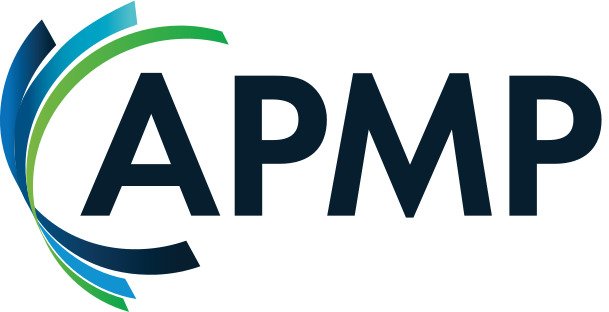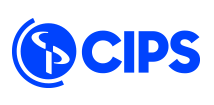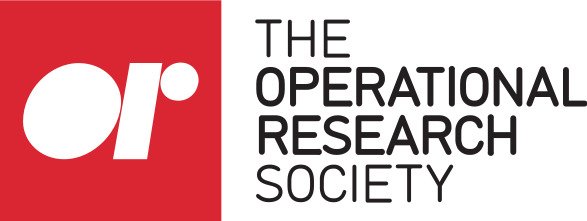
Client Communication, Collaboration & Management
Successful bidders demonstrate how they:
Establish clear lines of communication with their clients, including agreed reporting methods and frequency of updates.
Meet and manage client expectations by providing realistic, achievable timelines through their mobilisation plan.
Monitor client satisfaction and review feedback, addressing any issues/concerns and informing continual improvement.
Work collaboratively with clients via site visits and bespoke service offerings e.g., tailored candidate screening processes, to better understand their clients’ needs and preferences.
Foster long-term client relationships by acting as a strategic partner, delivering value-added services e.g., market intelligence reports, and offering loyalty programs and incentives e.g., exclusive access to talent pools.
These questions enable bidders to present their:
ISO 44001:2017 accredited Collaborative Business Relationship Management System.
Collaboration awards, such as those issued by the Recruiter Awards, Onrec, and The Global Recruiter UK Industry Awards.
Approach to managing/resolving any client complaints e.g., via a documented complaints management procedure.
Use CRM systems e.g., Salesforce, Microsoft Dynamics 365, to effectively track and manage client relationships.
Transparent progress updates and ISO 10004:2018 accredited methods for monitoring and analysing client satisfaction e.g., feedback surveys, performance reviews, and focus groups.
Use of knowledge management systems e.g., Guru, Document360, and SharePoint, to facilitate information sharing.

Meeting Client Needs and Service Delivery
Successful bidders demonstrate how they:
Develop deep understanding of their clients’ specific needs via comprehensive needs assessments, discovery interviews, impact assessments, and competency mapping.
Can stretch their capacity to deliver e.g., for short-notice requests, by using agile recruitment processes, AI-powered applicant screening tools, and building a strong talent pool.
Ensure consistent, compliant service delivery by implementing robust quality assurance and control measures e.g., audits, performance evaluations, and feedback analysis.
Meet client needs by going beyond transactional engagements; understanding clients’ long-term goals and talent needs; and providing support and strategic guidance.
These questions enable bidders to present their:
Agile staffing solutions to effectively meet client needs, using Applicant Tracking Systems and on-demand and just-in-time staffing software e.g., Teamtailor, Bullhorn, and Cegid Talentsoft.
REC Audited status and use of ISO 9001:2015 accredited quality management systems, processes and procedures.
Use of data-rich market research tools e.g., Lightcast and TalentNeuron to improve insight on industry trends, regulatory changes, and local labour market dynamics.
Comprehensive contingency plans, including a bank of qualified/experienced reserve staff to further ensure capacity.
Membership of bodies such as the REC and IRP and use of compliance management software e.g., Aktiv .

Successful bidders demonstrate how they:
Implement a data-driven approach to performance management and monitoring, using Applicant Tracking Systems (ATS) and CRMs to capture relevant data.
Establish and report performance against SMART, contract-specific KPIs/SLAs e.g., time-to-fill, sourcing channel efficiency, and employee productivity.
Maintain high levels of performance by following frameworks such as the REC’s Code of Professional Practice, and CIPD’s Recruitment and Selection guidelines.
Foster a pro-quality culture amongst staff via audits, detailed method statements, and incentives for high performance.
Use BPM software e.g., RecruitBPM to manage and streamline tasks, improving productivity and performance.
Performance Management, Monitoring, and Reporting
These questions enable bidders to present their:
Detailed management information reports for performance reviews, covering attendance records, client/candidate feedback, and performance vs. KPIs/SLAs.
Use of data processing/visualisation tools such as Microsoft Power BI, to enhance readability and impact of reports.
Detailed risk assessments, produced in guidance with ISO 31000 and IEC 31010, to avoid disruptions and uphold performance.
Use of common data environments e.g., SharePoint and Dropbox, to avoid document duplication, errors, and streamline workflows.
Establishment of a continuous improvement culture that uses performance data, feedback, and industry best practice to refine recruitment strategies and service peformance.

Sourcing, Selecting, and Vetting Suitable Candidates
Successful bidders demonstrate how they:
Develop an acute understanding of client requirements by conducting a thorough job analysis, informing sourcing criteria.
Build and maintain a talent pipeline, establishing relationships with potential candidates in advance by networking e.g., attending industry events.
Have a rigorous candidate screening process in place to ensure the most suitable candidates are selected from the talent pool.
Systematically and fairly select candidates using standardised and structured interviews, tests, and practical assessments.
Employ a diverse interview panel, ensuring as many protected characteristics (Equality Act 2010) as possible are represented.
Robustly vet candidates with pre-employment candidate registration and background checks e.g., validating qualifications, DBS checks, and BPSS checks.
These questions enable bidders to present their:
Diverse range of sourcing channels e.g., job boards, industry-specific forums, and online platforms e.g., LinkedIn, Indeed, and Totaljobs, to attract high-quality candidates.
Support of initiatives such as Ban the Box, Disability Confident, and The 5% Club, supporting their approaches to equality, diversity and inclusion.
Standardised competency assessment processes, based on the guidelines provided in ISO 10667-2:2020.
Use of powerful candidate screening/assessment software/tools e.g., Gyfted, Freshworks, and Talent Q, to effectively select candidates.
Talent relationship management systems, e.g., Avature, Gartner, and Beamery that enable recruiters to build and maintain their talent pipeline, improving candidate relations and matching.

Staff Management, Development, and Retention
Successful bidders demonstrate how they:
Clearly define job roles, responsibilities, and accountabilities, so staff fully understand what is expected of them.
Co-develop individual development plans (IDPs) with staff that outline career aspirations and skills required to progress further.
Foster a positive, inclusive workplace culture via initiatives such as equality, diversity and inclusion (EDI) groups, that actively promote EDI in the workplace.
Implement comprehensive staff training and development programmes, developing technical and soft skills competency.
Deliver mentoring and coaching programmes/systems e.g., peer mentors, to provide staff with continual guidance, support, and knowledge-sharing opportunities.
Conduct regular staff performance appraisals, providing constructive feedback, identifying achievements and any areas for improvement (which inform IDPs).
These questions enable bidders to present their:
IIP accreditation and Great Place to Work certifications.
Staff retention programmes, which include benefits such as flexible working, health insurance, Sharesave/SAYE, and attractive employer pension contributions.
Opportunities for job rotation and cross-training for staff, broadening their skills, increasing their versatility, and deepening their understanding of their organisation.
Formal staff recognition programme/rewards, incentivising staff with bonuses, promotions, and additional annual leave.
Use of exit interviews to gather feedback and understand reasons for departure, informing continual improvement and retention strategies.
Staff CPD programmes, in which staff are encouraged to attend and pursue external role-specific training programmes and accredited qualifications. Staff are given financial assistance, study leave, and/or flexible working arrangements.

Continuous Improvement, Innovation, and Added Value
Successful bidders demonstrate how they:
Conduct process mapping exercises, reviews and audits to identify end-to-end workflows, which are analysed to identify bottlenecks, inefficiencies, compliance gaps, and areas for improvement. Tools such as value-stream mapping are used.
Use process improvement methodologies e.g., Kaizen or Lean Six Sigma to identify and resolve inefficiencies.
Foster innovation and encourage creative thinking among staff, e.g., through open innovation challenge days.
Add value by streamlining recruitment processes, accelerating the hiring timeline whilst enhancing client satisfaction.
Further add value by providing clients with in-depth market insights on areas such as talent availability, salary trends, and competitor analysis.
Use data such as recruitment and performance metrics and client/staff feedback to identify improvement opportunities.
These questions enable bidders to present their:
Use of client/stakeholder feedback and lessons learnt reviews to drive continuous improvement and extract actionable insights, enhancing contract performance.
Innovation management system, using ISO 56002:2019 as a framework to manage their innovation processes and enhance their overall innovation capabilities.
Approach to regular cost monitoring, resource optimisation, and implementing continuous improvement initiatives, all of which delivers added value to their clients.
Use of data-driven and AI technologies e.g., HireVue to analyse large volumes of candidate data via automated workflows, adding value to their processes.
Use of data-rich market research tools e.g., Lightcast, to deliver added value by improving client insight on industry trends, regulatory changes, and local labour market dynamics.

Social Value
Successful bidders demonstrate how they:
Implement policies and practices that ensure equal opportunities and workplace diversity and inclusion e.g., proactively recruiting candidates from underrepresented groups, individuals with disabilities, and those who are NEET.
Use social impact frameworks, including Social Accounting and Social Return on Investment (SROI).
Engage with local communities by organising or participating in initiatives such as job fairs, skills development programs, or career counselling sessions.
Work collaboratively with local educational institutions, councils, and training providers to identify and nurture local talent, prioritising local hiring to support local economic growth.
Co-design and co-produce social value initiatives with clients to support their social value objectives e.g., switching to sustainable energy tariffs to meet external/internal sustainability targets.
These questions enable bidders to present their:
Signatories to a number of employment charters, such as Ban The Box, The 5% Club, the Armed Forces Covenant, and Disability Confident, and are accredited Living Wage employers.
Social value policies, using ISO 26000:2010 as a framework. Policies include clear objectives, targets, action plans, and defining roles and responsibilities.
Use of tools such as The Social Value Portal’s National TOMs, to quantifiably measure their social value commitments.
Social value awards issued by the likes of the SVLG, ENEI awards, and the BITC Responsible Business awards.
CSR strategy, which is aligned with social issues relevant to their operations and implemented through employee volunteering programmes.
Social value impact reports, produced by designing and applying indicator frameworks, impact maps, and outcome-monitoring systems.

Data Protection
Successful bidders demonstrate how they:
Securely collect, process and store data in compliance with the Data Protection Act 2018 and their Privacy Policy for the client’s personal data, using firewalls, independent VLAN, encryption, password-access controls, MFA, and patch controls.
Employ qualified IT personnel who have achieved CompTIA Security+, hold Certified Ethical Hacker certification, and are CISSP certified.
Implement strict access controls, ensuring only authorised personnel have access to client/candidate personal data, e.g., strong authentication mechanisms, role-based access controls, and regular review and monitoring of access privileges.
Protect the security and integrity of client/candidate personal data during service delivery, mitigating information security risks associated with IT systems and the physical environment.
These questions enable bidders to present their:
Security incident management policies and processes with the capability to detect, manage, and analyse security incidents.
Use of qualified cloud service providers to conduct regular penetration testing of their IT systems, covering applications, infrastructure, unauthenticated external attacks, social engineering, and unauthorised data access.
ICO registration and ISO 27001 and Cyber Essentials Plus certifications, assuring clients and candidates of their adherence to information governance requirements.
Privacy impact assessments, to assess the impact on individuals' privacy and implement necessary measures to mitigate risks and ensure compliance.
Robust data back-up procedures e.g., automatic data back-ups, storing files in a separate file store database, use of remote servers, and server snapshots.
Our S&R Model Answers
From our analysis of over 7,530 S&R tender questions, we recorded a clear pattern of repetition – most buyers want to know the same things about bidders, such as their approach to meeting client needs, staff management, and social value.
Our S&R model answers condense winning features from these bids, ensuring you answer tender questions with the best content possible.
The Value of Our Model Answers
Our model answer packages will save you time and costs whilst growing your profit. They are approximately 3x faster than conventional bid writing services, based on client experience.
If you were winning 3/10 bids, you will now win 9/30 bids with the same overhead, due to faster production.
Clients switching to our model answers have also experienced a 30% increase in bid success on average. Those winning 9/30 bids now win 12/30 bids.
With no change in resource and price, you can go from 3 contract wins to 12 contract wins.

Bespoke Bid Writing
Win staffing and recruitment contracts through our no-win no-fee and success-based fee offers.
We understand what Buyers want to see in winning bids and know how to present that information concisely and effectively. Every bid our clients submit is backed by proven, winning content.
£2 billion
Contract value we have won for our clients.
Your answers will draw on our unrivalled collection of model answers, best industry practice, local strategies/plans, and be fully aligned with the award criteria, maximising your scoring potential.
We understand the risks/challenges bidders face in producing winning bids, and we are confident in the quality of our work. Therefore, we offer no-win no-fee and success-based fee options to qualifying bidders.
Our wholistic end-to-end service will support every aspect of your bid, providing an invaluable double-check of and positive challenge to your bid.
We combine our sector knowledge and bid expertise to consistently create winning bids for our clients.
Expertise you can rely on
We review published reports, white papers, and publications by sector bodies and study best practice through our membership of organisations such as REC and CIPS. This helps us integrate established and innovative approaches into our model answers and your bids, ensuring they remain informed, up-to-date, and fully aligned to buyers’ requirements.
We employ APMP-qualified bid professionals with vast subject matter expertise and experience. We also employ senior bid experts who are APMP Mentors, helping to shape and move the bidding industry forward.
You will benefit from strategic conversations with our bid experts about key S&R question themes e.g., curriculum design & intent, delivery models, and learner journeys, making certain your bid delivers in every scored aspect. Our bid team will review each bid in isolation, benchmarking it against the marking criteria and best practice, to ensure your bid scores maximum marks.









Using AI to Enhance Our Model Answers
Our application of AI-driven software supports the winning content of our model answers, resulting in informed, excellent responses to tender questions.
We use AI-powered software to extract, cleanse, and aggregate bid-related data from websites and collate the information for review. Our team of bid professionals then assess the value of the collated information and integrate this into our model answers appropriately, using their extensive knowledge and subject matter expertise.
We also use AI-powered software to monitor any changes/updates to the information we draw from. This includes evolving best industry practice; updates to relevant legislations, standards, and regulations; and newly published white papers and reports. We monitor hundreds of sources daily across multiple industries to keep our model answers up-to-date and highly competitive.
Our use of AI-driven software, coupled with the content of winning bids, is unprecedented and unrivalled. We are revolutionising the way business is won, all to the benefit of our clients.
Using portals to strategically identify and select tenders
How to effectively make bid/no bid decisions
Understanding, meeting, and exceeding the buyer’s requirements
Creating and implementing win themes
How to use our unrivalled collection of model answers
How to storyboard each of the key sector themes buyers commonly ask questions on
How to effectively use tender documents to ensure compliance and enhance your answers
Quality assuring each stage of your bid production process
Our training and mentoring service will provide you with the tools, methods, and advice to successfully and consistently create winning bids. We cater for all levels of bidding experience and tailor content to your organisation, sector, and needs.
Our training and mentoring service is engaging, relatable, and informative. Examples of content we have delivered through our service include:
Training & Mentoring

Outsourced Bid Teams
Our outsourced bid team service offers clients exceptional quality in an extremely flexible format.
We provide bid writers, bid managers, bid coordinators, and subject matter experts.
£252 : £1
Average ROI of our clients for every £1 invested
Our pay-as-you-go model enables you to turn resources on and off in-line with your bidding needs, providing cost-effective operational flexibility.
Bid Software
Bid software is your catalyst to winning more work whilst saving money and time. From selection and implementation to managing and integrating your model answer package, we will guide you every step of the way.
Our competency and experience with bid software is second to none. Having worked with over 100 bid software providers, we are experts in understanding what is on offer and what will provide you with what you need or have been wanting.
Centralised dataflow, cloud-based operations, intelligent search engines, seamless integration of our model answers, Microsoft Word editing, intuitive dashboards, and data protection are just some of the functions and features we can provide.
Request a call back
Please fill out the contact form if you have any questions or queries. Alternatively, email us at client.services@tenderanswers.com.
Adding Value Through Cross-Sector Expertise
We add value to our model answers and bespoke bid writing services by drawing applicable best practice from other sectors, such as construction, construction professional services, and education & training. Our unique cross-sector expertise enables us to take ideas, insights, technologies, systems, processes, and procedures from one sector and apply them to another. This helps our clients bridge knowledge gaps, accelerate their learning curve, and stay ahead of their competitors.
By working across multiple sectors, our bid experts see trends before they develop and identify opportunities for new, improved ways of working. This enables our clients to develop innovative approaches to their work, helping them achieve higher levels of efficiency, stand out above their competitors, and win valuable contracts more often. Additionally, through our cross-sector expertise, we continue to help our clients diversify by identifying new revenue streams, partnerships, and business models, futureproofing their businesses.



















